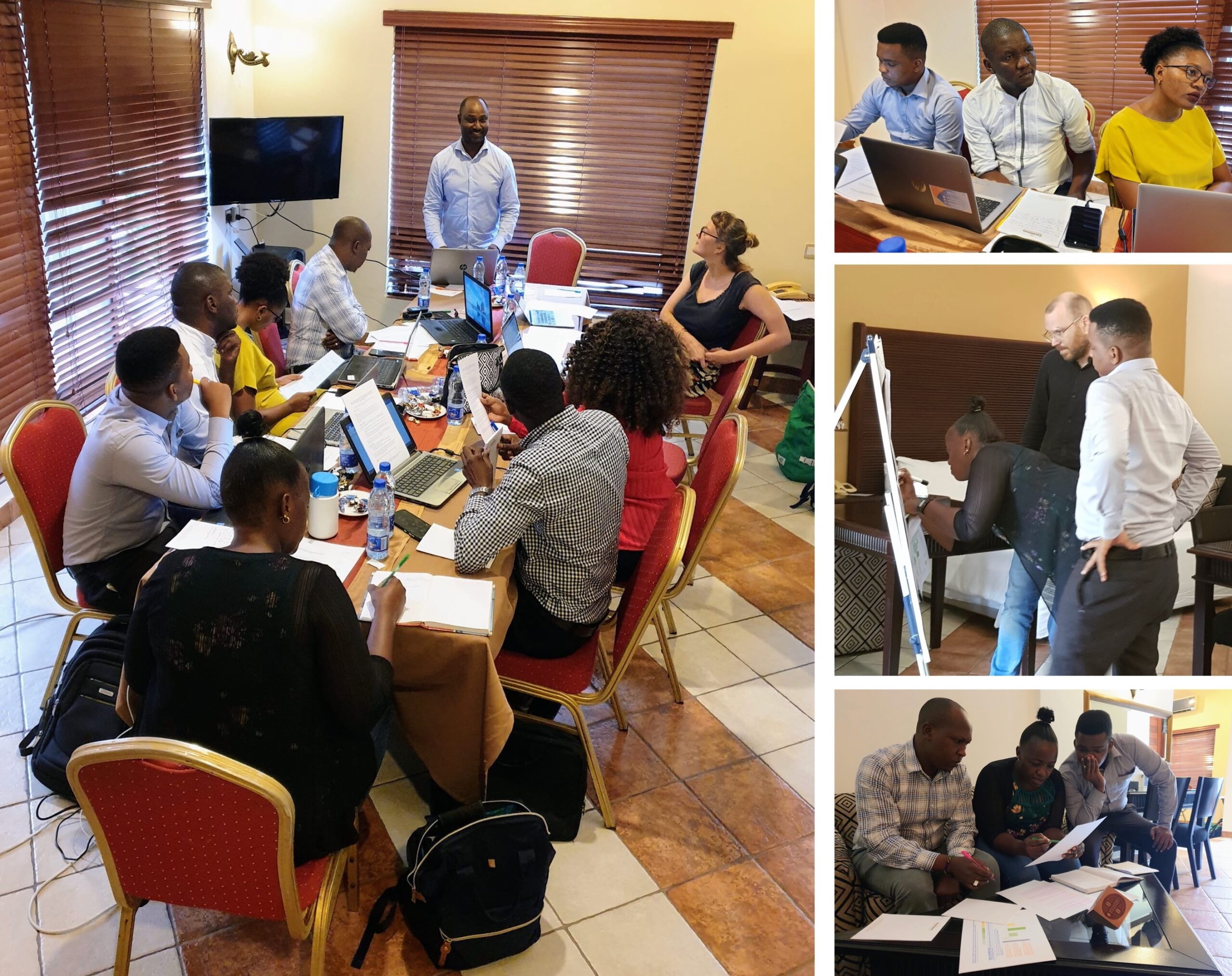In 2022, IPIS launched new work on the human rights impact of the natural resource sector in Tanzania.
Our new five-year project “Empowering Tanzanian communities and civil society to foster justice & human rights in natural resource governance” builds on the expertise IPIS has been developing on northern Tanzania’s small- and large-scale mining sector as well as the implementation and monitoring of “Business and Human Rights” principles in various economic sectors in the country.
Central to our new project is the strengthening of Tanzanian civil society organisations and communities as rights holders in natural resource governance, in order to push for economic development that is based on principles of justice and human rights, contributing to sustainable, inclusive development for all.
To achieve this, we will be implementing a suite of activities in the following years, in partnership with Avocats Sans Frontières, and our Tanzanian partners Business and Human Rights Tanzania and HakiRasilimali.
Activities will feed into three interconnected result areas:
- Documentation: documenting and reporting on the human rights and socio-economic impacts of resource extraction, with a strong focus on community-based, grassroots data
- Remedy: promoting improved access to remedy and justice
- Advocacy: facilitating evidence-based dialogues and engagement with government and corporate stakeholders to promote good natural resource governance
Geographically, we will focus our work on the natural resource sector in four of Tanzania’s resource-rich northern regions: Mara, Shinyanga, Manyara and Tanga.
What we have been working on so far
In April 2022, we kicked off the new project by bringing the team (back) together for a series of project launch workshops in Dar es Salaam.
Since then, we have been working on a baseline assessment for the project, mapping and analysing the current context, frameworks, stakeholders, opportunities, challenges regarding natural resource governance, access to justice and human rights, at the national level and in the four selected focal regions (Shinyaga, Mara, Manyara and Tanga). Since July 2022, scoping visits to these four focal regions have been ongoing, informing us on present-day priority areas, topics and key local stakeholders to engage with.
In Mara region, BHRT and IPIS have joined a group of Tanzanian civil society organisations that have been engaging with Barrick Gold Corporation’s North Mara mine.
The North Mara gold mine, located in the Tarime district of Mara, is one of Tanzania’s large industrial gold mining operations. For years, the mine has been linked to allegations of human rights violations due to actions of private and public security, to water pollution and waste management issues that caused tensions with the Tanzanian authorities in 2019 and to strained relations with the host communities of the North Mara mine. Earlier this year, corporate watchdog RAID shared findings of continued killings and other human rights violations at the mine site, countering Barrick’s claims of radically improved community relations at its North Mara site. Since taking over majority ownership of the mine in September 2019, Barrick has repeatedly reconfirmed its commitment to address grievances and rebuild relationships with host communities and civil society.
In January 2022, a two-day civil society visit to the North Mara mine site was organized by Barrick’s North Mara Community Relations Office, to which BHRT and IPIS participated. The visit consisted of a presentation of actions taken by Barrick to mitigate and improve on human rights and environmental issues, a guided tour of the site, and a meeting with representatives of nearby communities who were invited to the mine site by Barrick North Mara. The visit allowed introductions and overview presentations. But it cannot substitute for an independent civil society assessment, which would require a more long-term and independently organised presence in and around the mine.
A second site visit for a larger group of civil society organisations was organized by Barrick in July 2022. The programme of the day consisted of updates on issues raised during the January visit, and on developing priorities for potential further engagement between Tanzanian civil society organisations and Barrick North Mara. Such engagements would aim to explore sustainable solutions for human rights, environmental and community engagement challenges at North Mara in order to achieve an environment that is beneficial to communities as well as the mining company.
IPIS looks forward to continuing follow-up on much-needed efforts from Barrick to increase transparency in relation to its environmental monitoring, its operational grievance mechanism and the overall security situation around the North Mara site, as well as on engaging in structural and open dialogue with local communities and civil society.
What’s next
In 2023, we will start gathering data on the human rights and socio-economic impact of resource extraction in Shinyaga, Mara, Manyara and Tanga. Various documentation activities will be launched, including both broader-scale mapping as well as dedicated case studies. Data will be gathered in collaboration with IPIS’ partners and selected, trained civil society organisations, based in the project’s focal regions. Several workshops and trainings will take place to exchange best practices and learning for researching human rights impacts in communities affected by resource extraction.
For future reports, maps, briefings, … check the project’s webpage and IPIS social media channels #bizhumanrights #extractives #Tanzania
“Empowering Tanzanian communities and civil society for fostered justice & human rights in natural resource governance” is implemented by IPIS, in partnership with Avocats Sans Frontières, Business and Human Rights Tanzania and HakiRasilimali, with the support of the Belgian Directorate-General for Development Cooperation and Humanitarian Aid (DGD).






